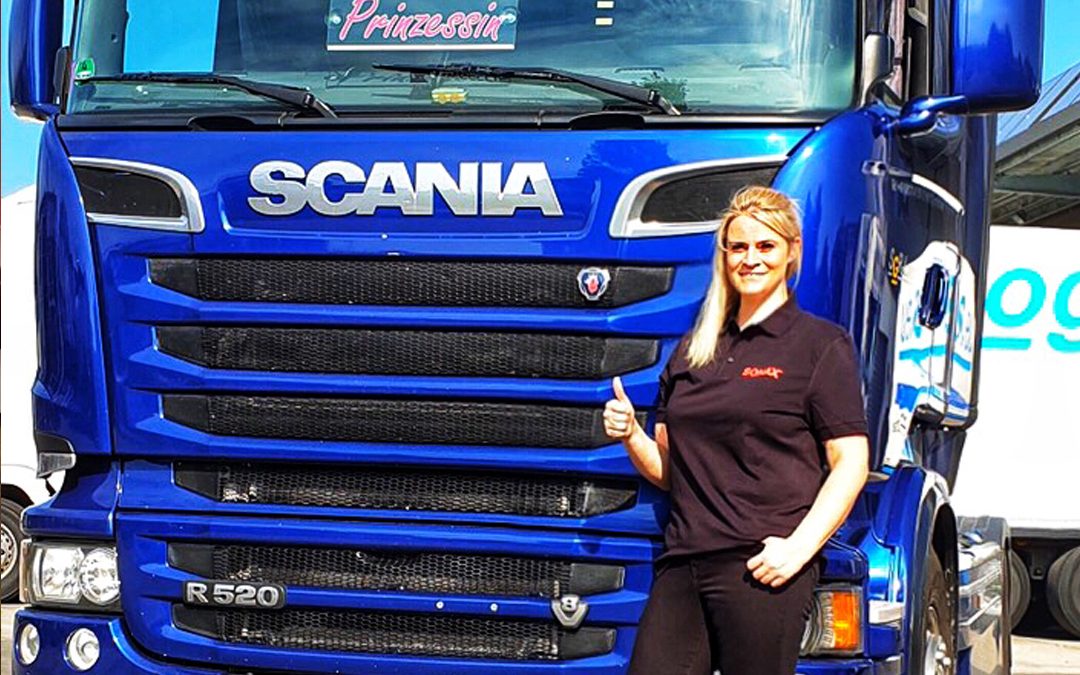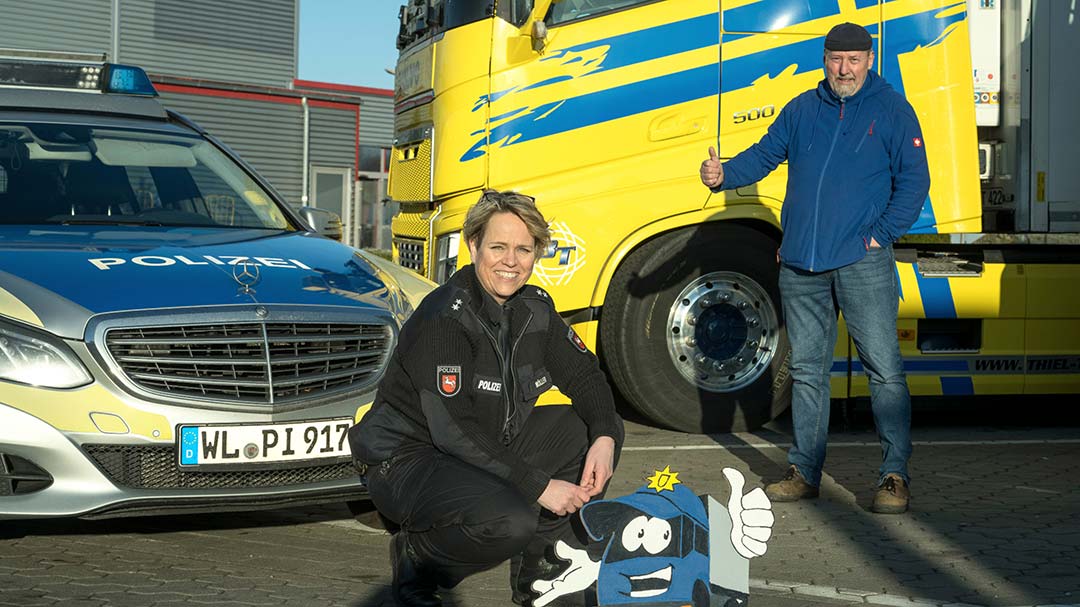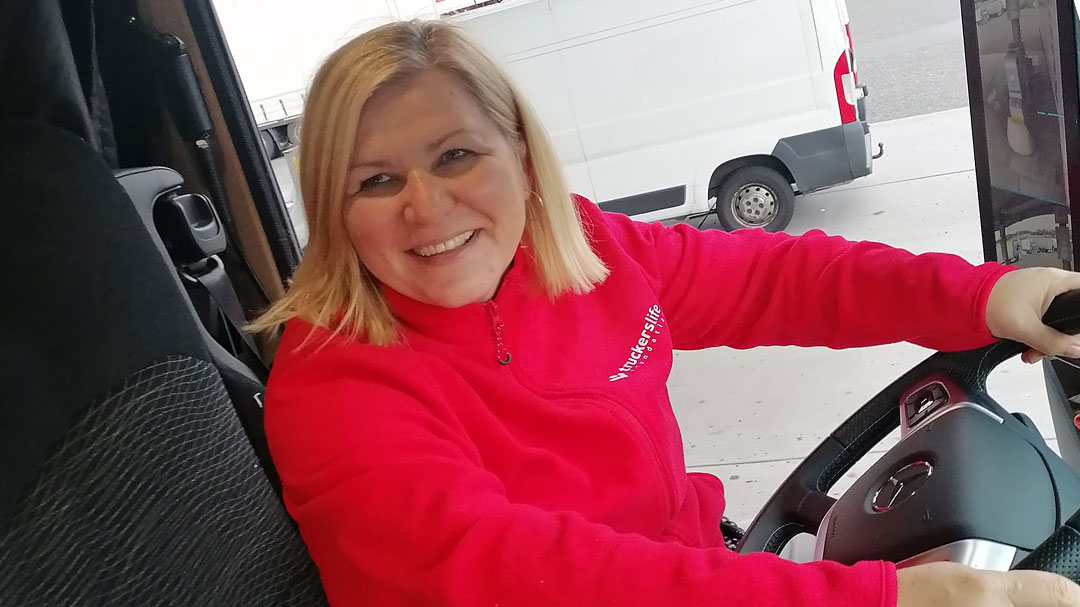Text: Kerstin Kloss
Photos: BeraCom, Semperit, Greiwing, BPW Otomotiv, private
On 8 March, it is International Women’s Day – it has been a public holiday in Berlin since 2019, while in other countries, such as Russia and Vietnam, it has been for much longer. How are women faring in logistics? The best way to find out what’s going well and where difficulties lie is for successful women in logistics to tell us themselves.
‘Women often don’t even consider working in this industry,’ says Stephanie Künzel, branch manager at Greiwing – logistics for you. The family-owned company has its own vehicle fleet with over 200 tractor units and more than 550 special trailers. With more than 800 employees at twelve locations throughout Germany, the ratio of women to men at the company is one to eleven. The gender gap is even greater among commercial employees – here, only one out of every 38 employees is female. However, managing partner Jürgen Greiwing notes that the percentage of women at the company has risen over the years: ‘The number of applications we receive from female candidates continues to increase, particularly for our vocational training programmes.’ And there are also more and more women among the trainers – one of them is Martina Schmidt at the Bavarian Greiwing location in Leipheim.
The forwarding specialist completed vocational training at Greiwing herself and became an instructor there in 1999. Since then, she has trained about 30 young people, about half of whom were women. The 46-year-old has always been interested in sharing her knowledge, and had previously considered studying to become a teacher. But then she just ‘fell into the logistics industry,’ as she puts it. In addition to forwarding and logistics service specialists, Martina Schmidt has also been training warehouse logistics specialists for several years now. To her female trainees, she says: ‘As a woman, you can accomplish anything in the logistics industry.’ Nevertheless, Greiwing – like most companies in the industry – still has many more female employees in commercial positions than female truck or forklift drivers – despite the fact that less physical strength is needed to operate the vehicles today than in the past thanks to digital tools and controls.
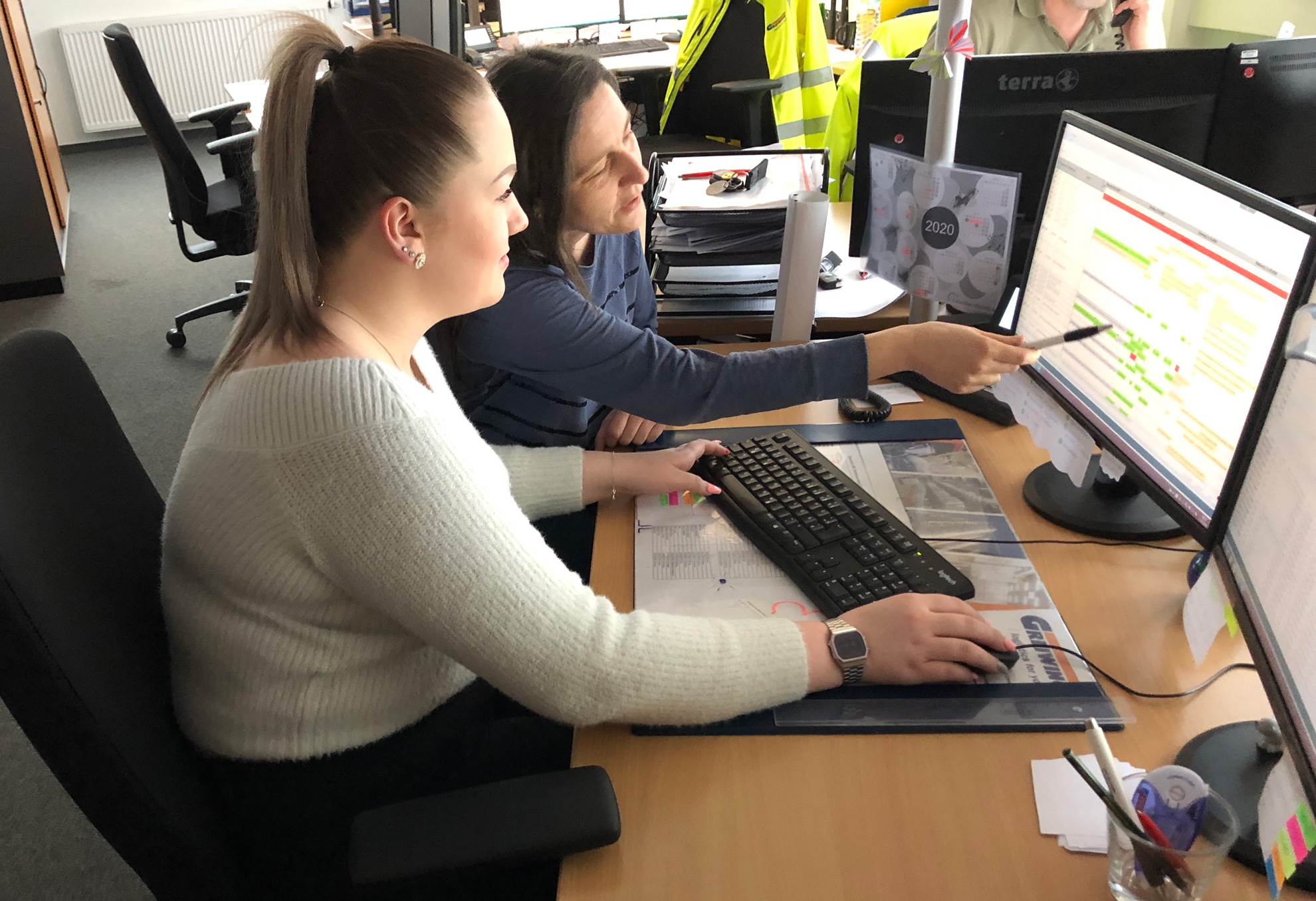
Martina Schmidt (right) has been training aspiring forwarding specialists since 1999, getting them fit for a successful career in the industry.
Careers often shaped by coincidence
As plant manager of the Turkish BPW plant in Gebze, Gülsüm Çıǧın has a simple recipe for earning respect as a woman in logistics: ‘You can’t be afraid to muck in,’ she says. As examples, she mentions module picking, final packing of loose vendor parts or receiving goods. Gülsüm Çıǧın has been working for BPW Otomotiv, headquartered in Istanbul, since 2012. Before that, she worked on the other side: in a customer’s purchasing department. The transition ‘just happened,’ she says – an answer that you often hear from women in logistics when you ask them about their career plans.
Gülsüm Çıǧın grew up in Aschaffenburg as the youngest of four siblings in a Turkish family that came to Germany as guest workers. She moved to Turkey shortly before her 18th birthday, where she graduated from school and studied business administration. Over the course of her professional life, she stayed connected to Germany – as a translator, and in international purchasing and sales. That is why she knows the material for axle assembly inside out.

Germany: How many women in logistics sit in the boss’s chair?
%
of management positions in logistics are held by women
Source: CRIF Bürgel credit bureau, Statista 2020
According to the credit bureau CRIF Bürgel, 19.6% of management positions in logistics in Germany are occupied by women. Figures from the German Foreign Trade and Logistics Academy (DAV) show that an increasing number of women want to pursue a career in logistics, with the share of women in the DAV’s bachelor’s degree programme in International Logistics Management now at a good 30%, and 40.2% of participants in the industry’s ‘Vitamin BVL’ job fair female – an above-average figure.
Network for women in logistics
In 2010, the transport and logistics sector was still firmly in male hands. At the time, Britta Kahlfuss organised many industry events as deputy regional group chairwoman for the BVL association’s Hamburg chapter. ‘The events were always attended by a very small number of women,’ recalls the managing director of the Hamburg-based consulting and software development company Beracom. According to the BVL membership list, there were already around 100 women in logistics in the city at that time – but Britta Kahlfuss had hardly ever seen any of them. Over the course of her career, Kahlfuss, who holds a doctorate in industrial engineering, has had similar experiences to Gülsüm Çıǧın at BPW in Turkey. During the various stages of her career as an executive in management in the medical and automotive industries, she primarily headed up technical departments. For her it was ‘quite normal to operate in a male-dominated environment, to walk through the production halls and shape the processes there’. But now she wanted to know: who are the other women in logistics? This is what led to the idea of the Ladies Logistics Lounge and to her finding energetic and strong partners in the Logistics Initiative Hamburg, the Ministry of Economic Affairs, Transport and Innovation, and the Hamburg Chamber of Commerce.
The premiere of the series of events organised as a joint initiative was held on 10 June 2010 on the premises of Hamburger Hafen und Logistik AG. Since then, the female logistics specialists have met once a quarter at a different company to network. The meeting this spring will already mark the 35th such gathering. Around 400 female specialists and managers are now connected through the Ladies Logistics Lounge, and the meetings are regularly fully booked. But Britta Kahlfuss makes clear: ‘It’s not an event focused on gender.’ Instead, after a short keynote speech by the hostess, the focus is always on professional interaction. The logistics ladies discuss topics of interest to the host company in a workshop format. Since 2012, BVL has only played a limited role in the Ladies Logistics Lounge in Hamburg..
Since then, the network of experts has been promoting the concept under the banner of Ladies in Logistics, addressing women and men alike. Regional BVL groups and companies throughout Germany are taking part.
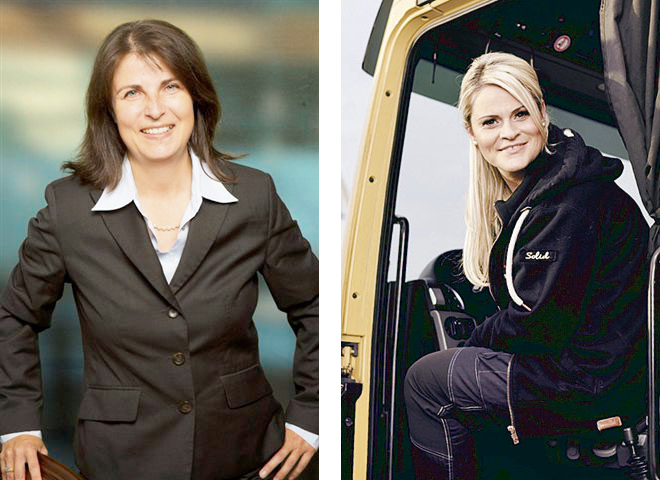
Successful ladies in logistics: Britta Kahlfuss (left) and Christina Scheib
As a trucker, Christina Scheib marches to the beat of her own drum
It isn’t only women who are advocating for more female employees in male-dominated professions. Professor Dirk Engelhardt, chairman of the board at the BGL (German Haulage, Logistics and Waste Disposal Federation), is unhappy about the fact that women have so far been ‘completely under-represented’ behind the wheel of a truck: ‘As an association, we want to encourage women to enter this important profession.’ To achieve this goal, the BGL enlisted Christina Scheib as ambassador for professional female drivers in April 2019 – she became famous as the protagonist of the TV show Asphalt Cowboys on the German TV channel DMAX. Since February 2020, the passionate trucker has worked full-time for BGL SÜD, including in member support and new member recruitment.
A part-time job as a tow-truck driver for the German Automobile Club (ADAC) put the trained medical assistant on the right track: ‘I’ve always marched to the beat of my own drum, and one day decided to become a professional driver, which is an exciting job,’ reports Christina Scheib. And this despite the fact that the now 34-year-old definitely considers her job on the roads to be a tough gig. The native of Bavaria has often spent a whole week on the road to Italy and back, spending the nights in the driver’s cab. ‘At motorway service areas, there were times when the looks from my male colleagues almost knocked me out. I always kept away from them,’ she recalls.
Despite these experiences, Christina Scheib’s interactions with men were largely positive. Men will often help her out at the loading ramp or on construction sites without her asking. That seems to be a male instinct, she says with a grin. What she finds less amusing is how critically female job performance is judged: ‘When women do excellent work, male colleagues are often quite envious. And if something doesn’t work out, it’s like, “She just can’t do it”.’ In her new job at the BGL, she not only wants to inspire more women to become drivers. At the same time, she also advocates for changes in the day-to-day lives of truck drivers, which is still very much tailored to men, such as making separate sanitary facilities for women in service areas normal. And she can check on the progress being made personally – she still drives trucks on a part-time basis.

